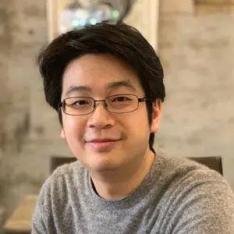MosaicML, the artificial intelligence company Tang co-founded three years ago to make the training of machine learning tools more efficient, was acquired by the data powerhouse Databricks for a $1.3 billion. The Wall Street Journal called it “a move aimed at capturing the fast-growing demand from businesses to build their own ChatGPT-like tools.”
Tang is the company’s chief technology officer; previously, he spent four years as the senior director of the AI Lab at Intel.
What does he think about the hype surrounding AI? Tang said he feels optimistic about its future, though even he’s less convinced about artificial generative intelligence — a technology capable of generating text or images — to achieve human abilities like common sense and consciousness.
“There’s still things fundamentally missing, in terms of reasoning and causality and things like that, that the brain has evolved to do, that these kinds of systems still haven’t, aren’t able to reproduce and fundamentally won’t be able to until more breakthroughs and the research side are made,” Tang said.
“I don’t believe in the artificial generative intelligence future, but I really believe that AI will help companies and organizations build better experiences and better products,” he said.
Tang graduated from Taipei American School. At Princeton, he enrolled in the first cohort of the University’s Integrated Science Curriculum (ISC), a program for freshmen focused on “a broad range of scientific concepts, bridging traditional barriers between the physical and biological sciences,” according to its website.
“At that time, it was a bit of an experiment because this was the first year they were doing it, so everyone had a fun attitude toward it,” Tang said. “One time, they made the test way too hard, and then after they said, ‘Hey guys, we made the test way too hard. Don’t fret if your scores at not great, we’ll curve everything.’”
While earning his physics degree from Princeton, Tang completed a senior thesis in machine learning and computational neuroscience. These areas became foundational for his later work in the AI field, especially as he witnessed the rise of deep learning — an artificial intelligence method that teaches computers to process data using techniques inspired by the brain — during his graduate studies at Harvard.
After grad school, Tang joined Nervana Systems, a deep-learning startup, where he met his future Mosaic co-founder, Naveen Rao. He said he thinks of himself less as a startup entrepreneur than “a researcher at heart who’s kind of interested in solving difficult problems.”
He plans to continue at Mosaic through and after the acquisition.
“Our journey was always to build accessible tools for enterprises to train their own large language models,” Tang said. “That continues at Databricks. I’m not going anywhere.”

